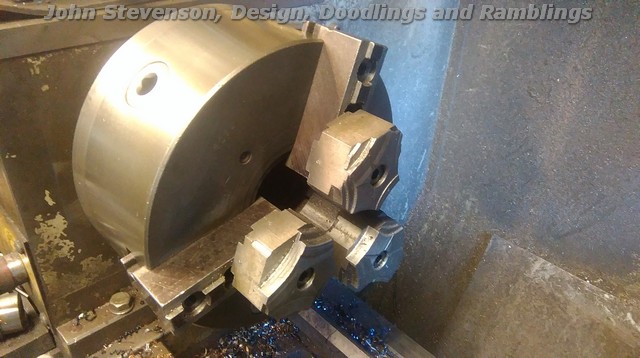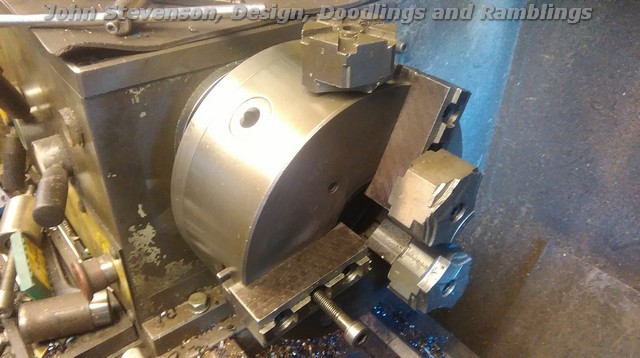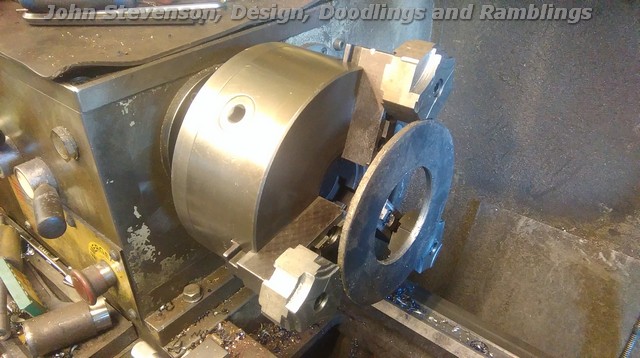Ok, had a few PM's and emails asking for details on the soft jaws I mentioned.
First off DON'T use the type of soft jaws Michael has illustrated above. For one they are too soft, not concentric, and don't support at the back end but then again anyone who actually used a lathe would know this.
Ajohnw also made a good point about the fit of soft jaws needing work to make fit. I personally can't comment on this as every set I have bought has fitted perfectly but I used to use a guy out at Mansfield, Oxton to be precise who did nothing but make soft jaws for industry. No idea if he's still trading but he turned out really nice work.
First shot to show the concept.

Just a standard set of soft jaws with a tenon machined on the top face and three tapped holes in each jaw with a small counterbore.
Onto these are fitted three pieces of hex bar with three slot in the back to locate onto the tenons and a counterbored hole for an allen screw and a small dowel on the back for repeatability.
Another shot.

better to show the jaw without the hex fitted and the rear of the hexagon.
You then load the jaws in the right direction by fitting a bung onto the ends of the original soft jaws and machining the hex out.
The one on the top of the chuck shows where it's been machined to hold a series of 5mm pins for a second operation. The other positions have been bored for other jobs, sometimes each position has been used 3 times.
I have about 5 sets of these hexagons lettered A to E ? and each jaw is numbered and the position is also numbered and a small notebook list the hole position in the soft jaw and the hex position for each special job so I can quickly go back.
The original soft jaws are never touched after the tenons and holes are drill so they will last the chucks lifetime.
The Hex bits are easily replaced when worn out but to be honest I am only using the A and B sets and have had no need to break out the other sets. The Hex bits were made of mild steel found in the local steel suppliers offcuts bin and cost peanuts.
Depending on which set of holes you choose you can go from the 5mm pin as an example to as big as the chuck can handle.

This being a 7" washer I fitted just for the photo shot but at 6mm thick it's an easy job to face up both sides and the bore.
I hope this is of interest to users.
Raymond Anderson.


 I got fed up with being asked to show visitors that. I always used the wheel. I also don't think that they are entirely correct on the max bed lengths of the T.
I got fed up with being asked to show visitors that. I always used the wheel. I also don't think that they are entirely correct on the max bed lengths of the T.









